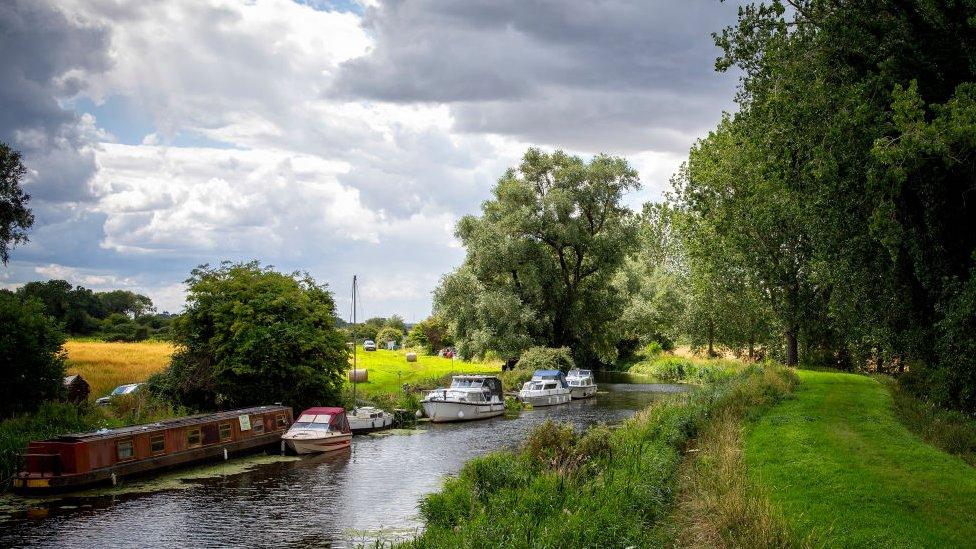Leighton Moss: Vegetation clearance boost for rare butterflies
- Published
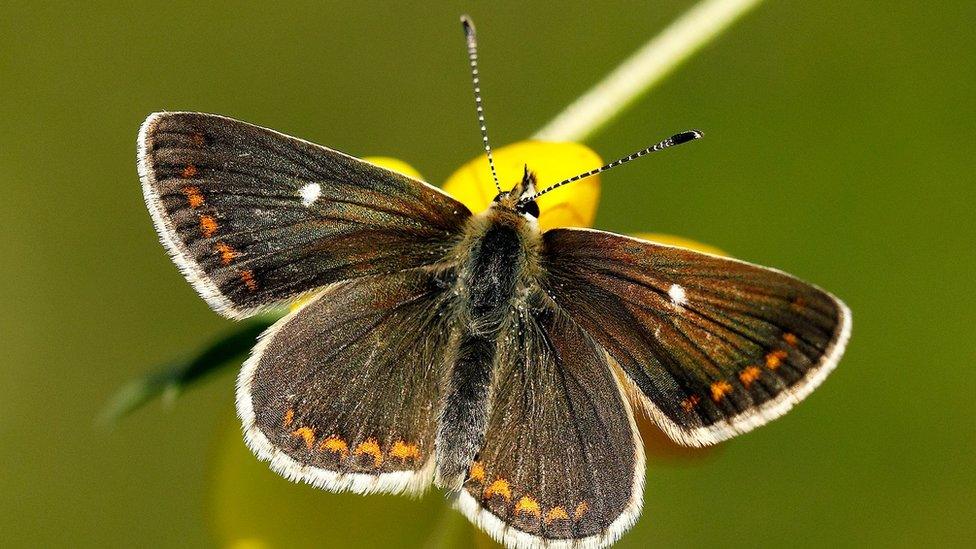
The RSPB work will help species like the Northern Brown Argus butterfly to flourish
Work to remove vegetation on a nature reserve is boosting the population some of endangered butterflies.
The RSPB said work near Leighton Moss Nature Reserve, Lancashire, had also uncovered an ancient lime kiln as trees and scrub were cleared.
It said the clearance, part of its restoration work in Back Wood, helps to build resilience for rare species.
The two-year project, which continues until January, was funded by the Lancashire Environment Fund.
The RSPB has also been working with the Coppice Co-op on the scheme.
Jarrod Sneyd at RSPB Leighton Moss emphasised the importance of creating wildlife corridors and connections within a larger landscape.
"If we give nature a helping hand, we're confident it will do the rest," he said.
The conservation charity said the work will enrich habitats and nurture wildlife as well as enhance the visitor experience at its nature reserve.
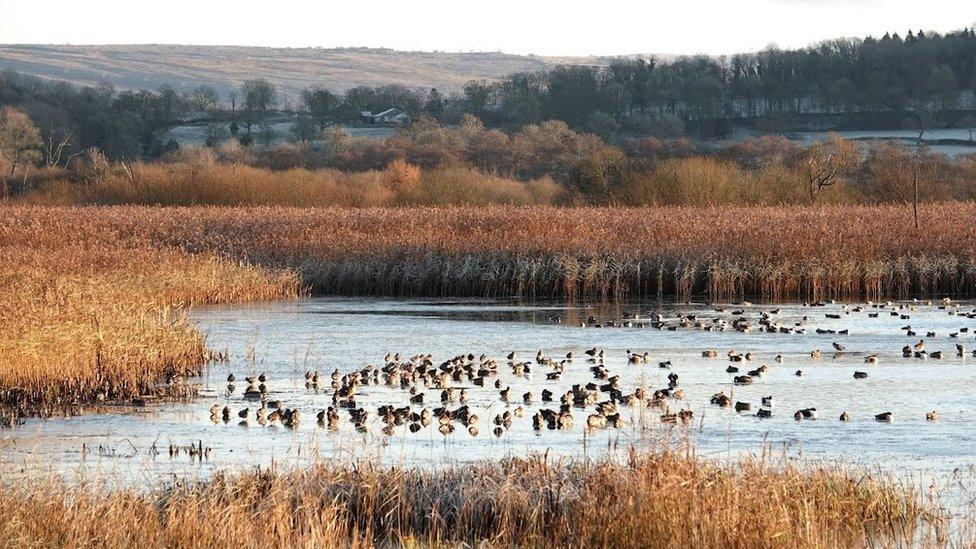
Leighton Moss Nature Reserve is managed by the RSPB
Scrub is also being cleared at nearby Warton Crag Nature Reserve where its limestone grassland, which is a nationally threatened habitat, hosts important populations of butterflies.
They include the Northern Brown Argus, a species in national decline, which feeds on rock rose, a plant reliant on this habitat.
The scrub will be cleared in strips to create unshaded areas and the right conditions for light-loving flowers such as violets, rock rose and knapweed.
The RSPB said habitat improvements help to build resilience for rare species still seen in the area, like the Northern Brown Argus butterfly, which is facing climate change pressure as a result of the drought-like springs of recent years.
Assistant warden Nick Godden said: "Nature is never easy to predict; however, if we provide the right habitats, there is hope, too, for even the rare High Brown Fritillary, formerly once found in north Lancashire, to re-colonize here."

Why not follow BBC North West on Facebook, external, X, external and Instagram, external? You can also send story ideas to northwest.newsonline@bbc.co.uk
Related topics
- Published12 November 2023
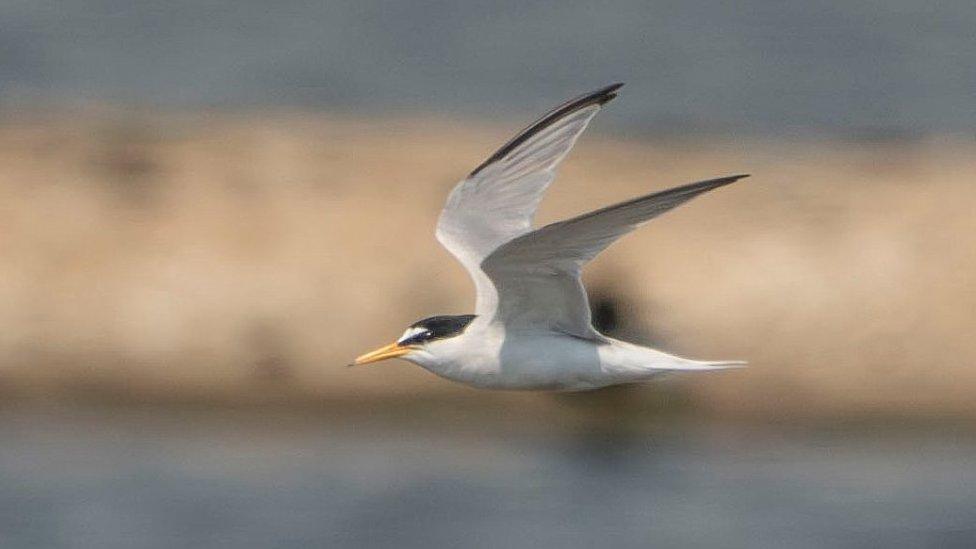
- Published3 November 2023
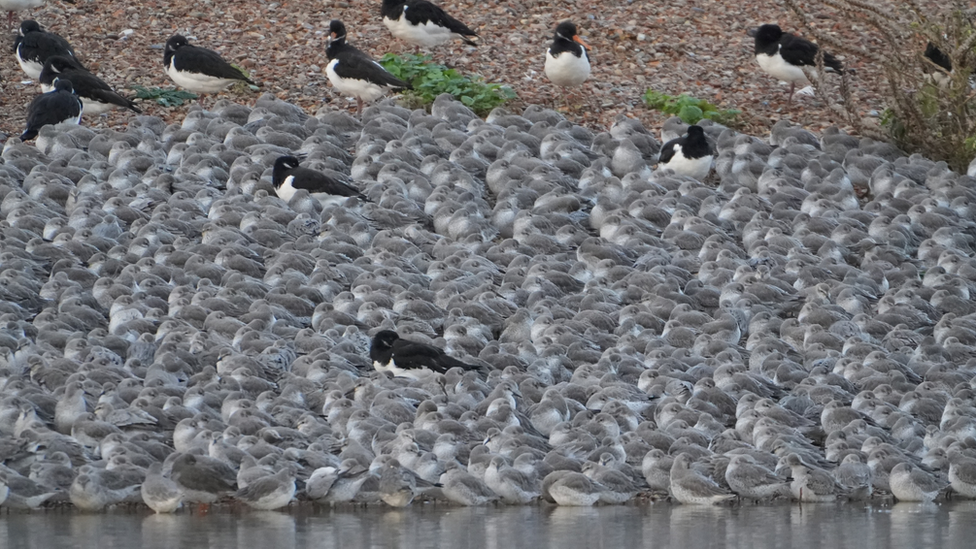
- Published25 September 2023
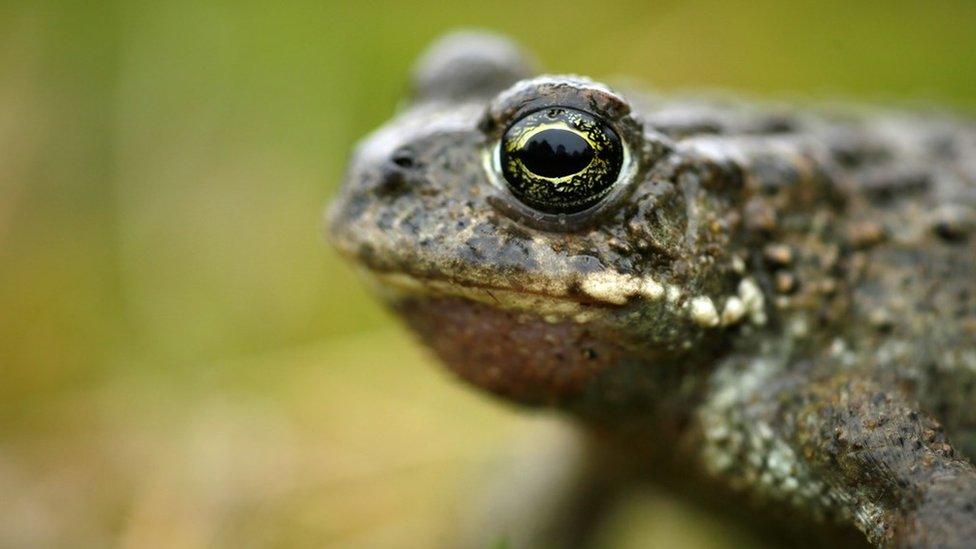
- Published31 August 2023
